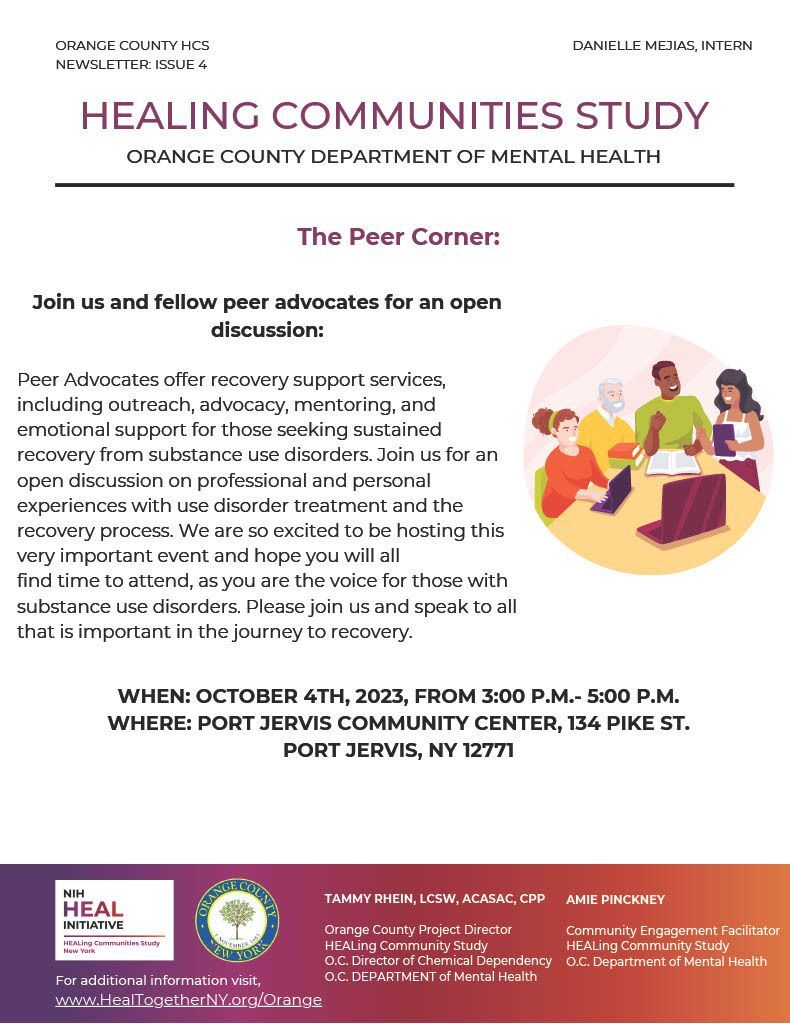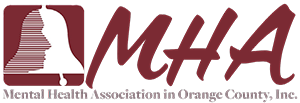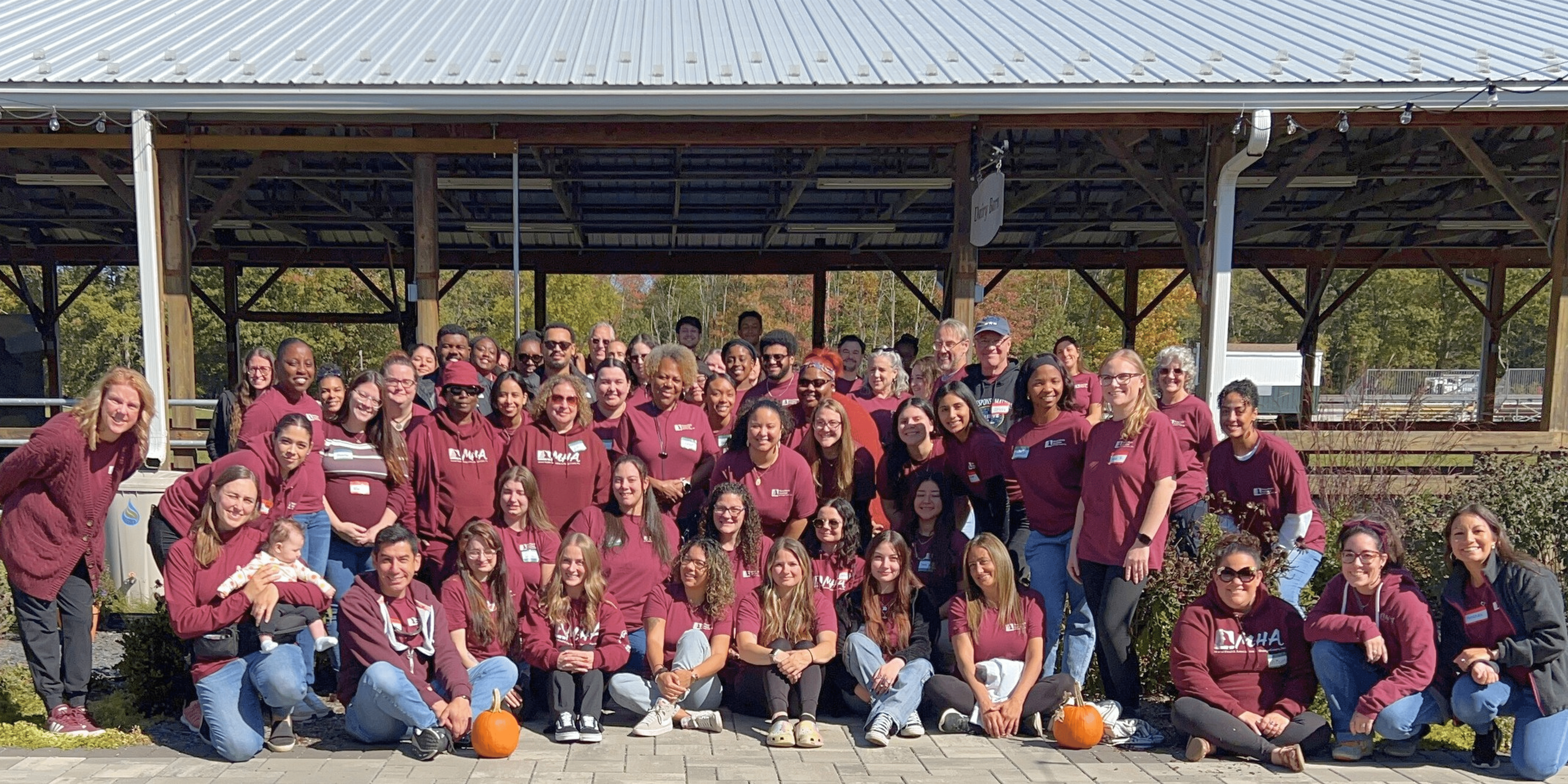
Mental Health Association in Orange County Partners with the NIH HEALing Communities Study

No matter who we are or where we come from, we all know at least one person affected by opioid use disorder (OUD). An estimated 2.1 million Americans have OUD. Orange County is not immune to this problem, having seen 135 overdose deaths in 2022.
What many do not realize is that OUD is a medical disorder characterized by an inability to stop the use of an addictive substance, despite the negative consequences associated with its use. Addiction is a chronic brain disease not a lack of willpower. Recovery from OUD also requires more than willpower, and medications can be part of the solution. Three FDA approved medications – methadone, buprenorphine, and naltrexone – can lower the risk of relapse and overdose. The longer a person with OUD stays in medication treatment, the greater the chance of a successful recovery. However, challenges associated with availability and acceptance of medication treatment exist.
To address these challenges, the HEALing Communities Study will launch a campaign August 7 - October 6, 2023, focused on Staying in Medication Treatment. This unique campaign aims to help people with OUD and needed supporters (e.g., loved ones, treatment providers):
- Understand how important medication treatment can be for recovery from OUD.
- Learn how to overcome commonly experienced barriers to treatment retention.
- Improve support for those in medication treatment.
Throughout the campaign, real people share their compelling stories about how they have overcome challenges to staying in medication treatment. Treatment challenges addressed throughout the campaign include managing anxiety and depression, coping with cravings and triggers, finding recovery support that accepts medication treatment, and asking for support from loved ones.
A HEALing Communities Study spokesperson, Zach, has been taking MOUD (Sublocade) for over 5 years as part of his recovery path. During a spokesperson interview led by study staff, Zach provided other people who may be struggling with some great insight. “MOUD has affected my life in a bunch of ways, positively, it’s an anchor, it sustains me, it’s something in my life that I consider to be a safety net.” He noted that MOUD “bridges the gap of uncomfortability and fear, it helps bridge the gap between substance use and life.” He says, “If you had asked the old me, who was hopeless, truly hopeless, if the life I currently live is even possible I wouldn’t believe you. But I am a success story, and part of that success is because of MOUD, I know it. MOUD changed my life.”
HEALing Communities Study Engagement Facilitator, Amie shares that “It has been an honor to work with our amazing spokespersons in Orange County, we are truly thankful for the bravery shown while sharing their powerful stories about their recovery journey and how they have overcome medication treatment challenges. By sharing their experience, they can inspire others who may be struggling with substance use, I believe both Zach and Donna’s story will inspire people with opioid use disorder to stay on medication as long as needed.
Join MHA - You Can Help HEAL our Communities
Everyone can make a difference by staying in MOUD treatment for as long as you need and supporting loved ones in MOUD treatment. About the HEALing Communities Study The National Survey on Drug Use and Health estimates that 2.1 million Americans have OUD, yet fewer than 20% of those individuals receive specialty care in a given year. A menu of evidence-based practices (EBPs) exists, including opioid overdose education and naloxone dissemination programs, prescription drug monitoring programs, FDA-approved medications for opioid use disorder (MOUD). Unfortunately, these EBPs have largely failed to penetrate community settings. As a result, the National Institutes of Health (NIH) and the Substance Abuse and Mental Health Services Administration (SAMHSA) launched the HEALing Communities Study (HCS) to investigate and identify the EBPs for preventing and treating OUD that are most effective at the local level. The goal of the study is to reduce opioid-related overdose deaths by 40 percent over the course of three years. To learn more about the study or support the Campaign, please visit:
HEAL Website: www.HEALTogetherNY.org/Orange
Facebook: https://www.facebook.com/OrangeCountyGovernment/
HEAL Community Engagement Facilitator: Amie Pinckney, apinckney@orangecountygov.com
HEAL Data Surveillance Coordinator: Brandon Bogert, bbogert@orangecountygov.com
HEAL Project Director: Tammy Rhein, trhein@orangecountygov.com



